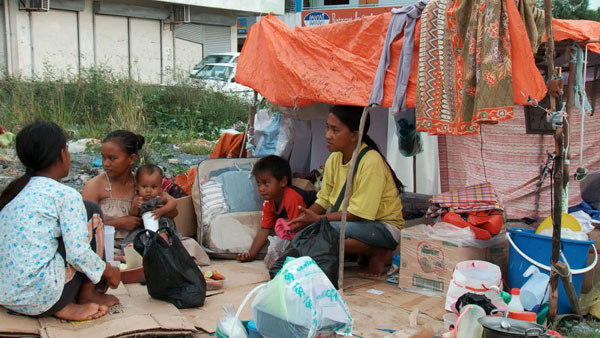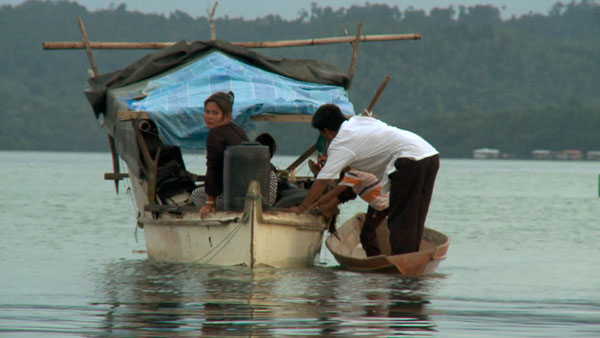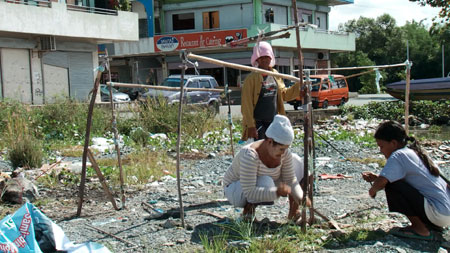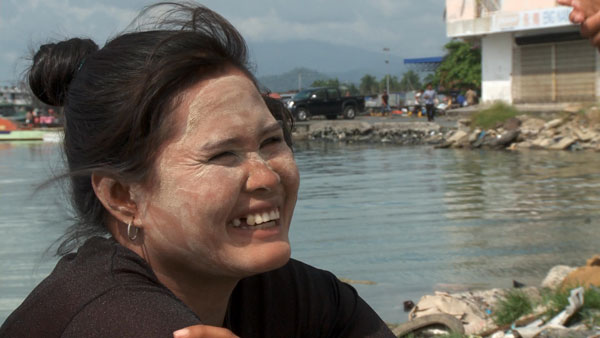NEWS 新着情報
【Film Info】Living Stateless
Statelessness refers to the condition of someone who is not considered as a national by any country.
See
Here for more information on Statelessness.
***
Interview
Director Vila Somiah
Producer Azliana Aziz
Tell us about the film. What is it about?
Vila Somiah: I think the whole idea came about because I'm Sabahan. When I was a kid, I used to go to a wet market and saw a lot of Philipino or Indonesian children. They would be just hanging around the market, doing a lot of work, following their mums... I used to wonder 'when do these kids go to school?' 'Why are they not going to school?

Azliana Aziz: When she told me about it at University, I haven't ever heard of stateless people within Sabah. The concept of stateless people was revolutionary to my young mind. I didn't even believe this happened. Just to prove her wrong, I went around and asked a lot of people, most of them from the peninsula. A lot of them didn't know what it was either. But when I eventually decided to do proper research, I realized it actually does happen but nobody knows about it, especially nobody in the peninsula. We decided that this is an issue.
Vila: For a long time, I was trying to reconnect with my Sabah roots. I think one of the big defining issues about Sabah is really the presence of undocumented persons or residents from either the Philippines or Indonesia. It's very hard to get this topic out because in many ways it's sensitive. But we wanted to see if we can make a documentary on something that has not been talked about.
In the film, you follow two families. Tell us about the families, what you saw.
Azliana: They live basically on a day-to-day existence. If they happen to make in that day, they will live that particular day. If they didn't, then they have to go without. There is no stability. If you want to talk about savings, they just laugh at you. For the most part, they didn't even have proper homes. One of the families lived in a tent, pitched up on the beach.
They don't have any legal documents, so they cannot get any legitimate jobs, and children can't go to school.

Azliana: They are mostly illiterate as well.
Vila: There is also a health issue. For us, in the worst case scenario, if I'm anywhere in Malaysia, all I have to do is go to a government hospital. Even if I were broke, I would get some form of medical help. But for them, even if they made enough money to pay, it's not possible. Because I think a lot of people are very afraid of getting them involved in stateless problem. For example, if you are working at a clinic, and the clinic became a hub for all these undocumented persons to come in, it could be a problem with the authorities. So everything is a problem.
So this is an important story to tell
Vila: Yes. We feel that it is very important. Let's put politics aside completely, this is an issue of humanity; you are a human being and I am a human being. When you connect with another person on a very human level, you don't want to see that happen to anyone, and I think it's very unfair. I don't want that for my children. It's unfair that they have to have it for theirs.
All Photos: © Matt Fillmore
"Living Stateless"
Directed by Vila Somiah, Matthew Fillmore
Malaysia / 2014 / 50 min / Documentary




